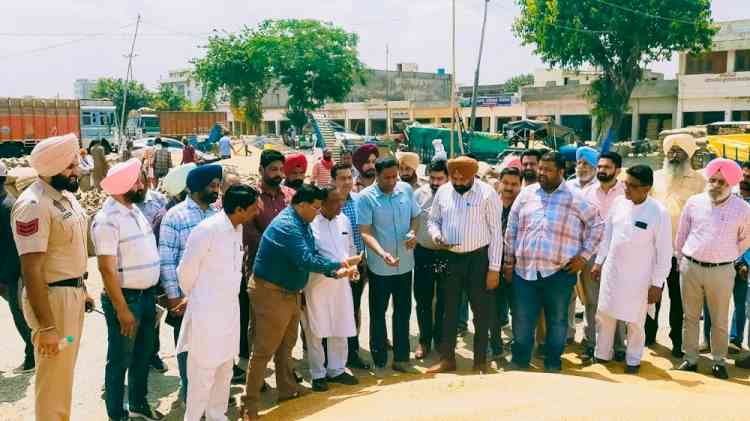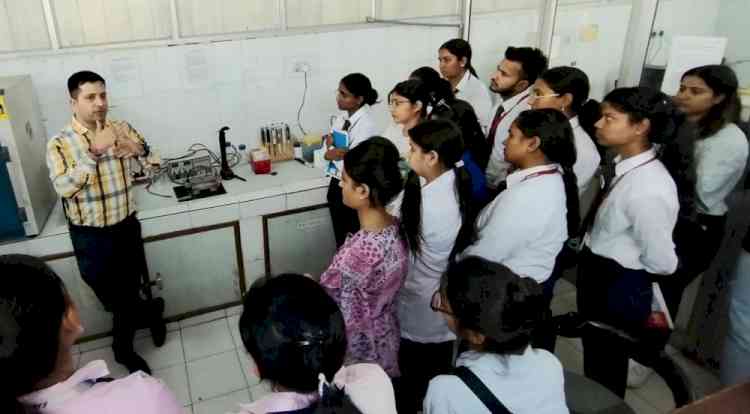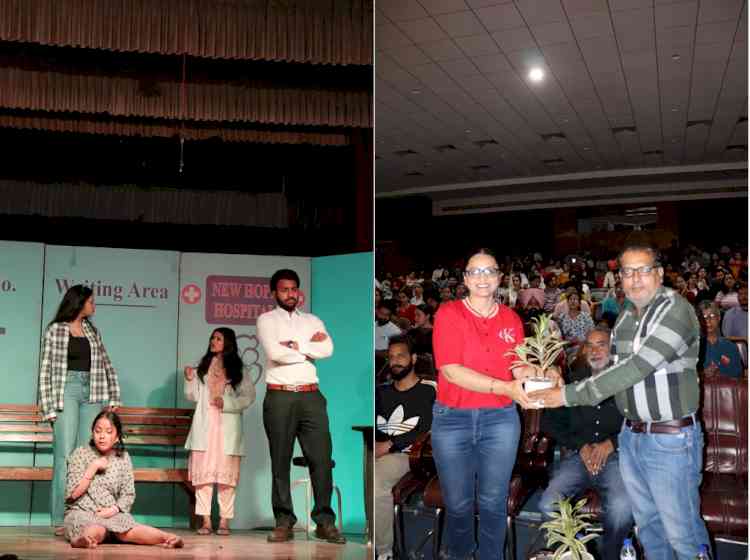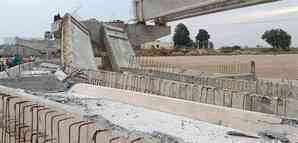Panjab University pained to learn that some students suffered from Neuro Cysticercosis (NCC)
Author(s): City Air NewsChandigarh, August 3, 2016: The Panjab University (PU) is pained to learn that some students have suffered from Neuro Cysticercosis (NCC). PU will bear/reimburse the full cost of medical treatment of the students...

Chandigarh, August 3, 2016: The Panjab University (PU) is pained to learn that some students have suffered from Neuro Cysticercosis (NCC). PU will bear/reimburse the full cost of medical treatment of the students for their OPD treatment at PGIMER, Chandigarh/ Government Medical College and Hospital Sector 32 and Government Multi Specialty Hospital, Sector 16, Chandigarh.
Earlier, the PU Medical Board comprising of University doctors inspected the medical reports submitted by five girls on August 1 and 2, who had reportedly complained to be suffering from Neuro Cysticercosis (NCC). The board submitted its report to the PU Vice Chancellor today.
The Medical Board has opined that there is a problem of cysticercosis (Tinea solium) in the reported cases. From medical point of view, the ingestion with Tinea solium larvae (Cysticercosis) is acquired through Ingestion of food, water or vegetables, contaminated with eggs of Tinea Solium and ingestion of inadequately cooked meat (Pork) and improper personal hygiene (Autoinfection). The problem of Tinea solium (Cysticercosis) is Worldwide. It is most prevalent (Endemic) in India, China, South East Asia, Latin America and sub-Saharan Africa. No place or person is immune from the infection.
The Medical Board has suggested various corrective measures like good personal hygiene of all including the food handlers – through proper washing of hands before eating and after defecation. The Medical Board has suggested adequate cooking of food; thorough washing of vegetables etc before eating or cooking; provision of clean drinking water; proper, adequate treatment and disposal of sewerage waste; treatment of infected persons; and health education of the public to prevent pollution of soil, water and food with human faeces.
In its report, Medical Board said that though no place or person is immune from getting infected with Tinea Solium (cysticercosis) but the above mentioned remedial measures suggested if taken care of earnestly, will go a long way in reducing (decreasing) or eliminating the problem of infection with Tinea Solium (Cysticercosis).
Two of the girls who appeared with their medical report are no more residents of the University Hostel No. 2. Ms. Kritika, who left the hostel on May 2015, was diagnosed with the problem in October 2015 by the doctors in PGI. Ms. Kamalpreet Kaur, left the hostel in June 2016, submitted copies of her PGIMER OPD card bearing CR No. 2015 0353 8794 dated 03/03/2016 with a diagnosis of NCC B/L Parietal region with Seizures and is on treatment. She also submitted copies of MRI brain report dated 12/02/2016 and 26/05/2016.
Ms. Harwinder Kaur submitted copies of her PGIMER Chandigarh OPD card bearing CR No 201603969411 date 11/07/2016 and MRI Brain report of PGIMER Chandigarh, dated 18/07/2016. MRI Brain report stated 'Ring enhancing lesion in Lt. Perisylvian area of Parietal cortex-likely infective? NCC'.
On August 1, Ms. Amanpreet Kaur submitted a copy of the NCCT Head and did not submit any other Medical record. On August 2, a colleague of Ms. Amanpreet Kaur, submitted her OPD Card bearing CR No. 2015 0292 5786 dated 27/06/2015 with FNAC suggestive of cysticercosis from scapular region.
Ms. Anu did not submit any medical record but verbally told the Medical Board about her problem and the treatment she was taking, which possibly indicated NCC.

 cityairnews
cityairnews 
















